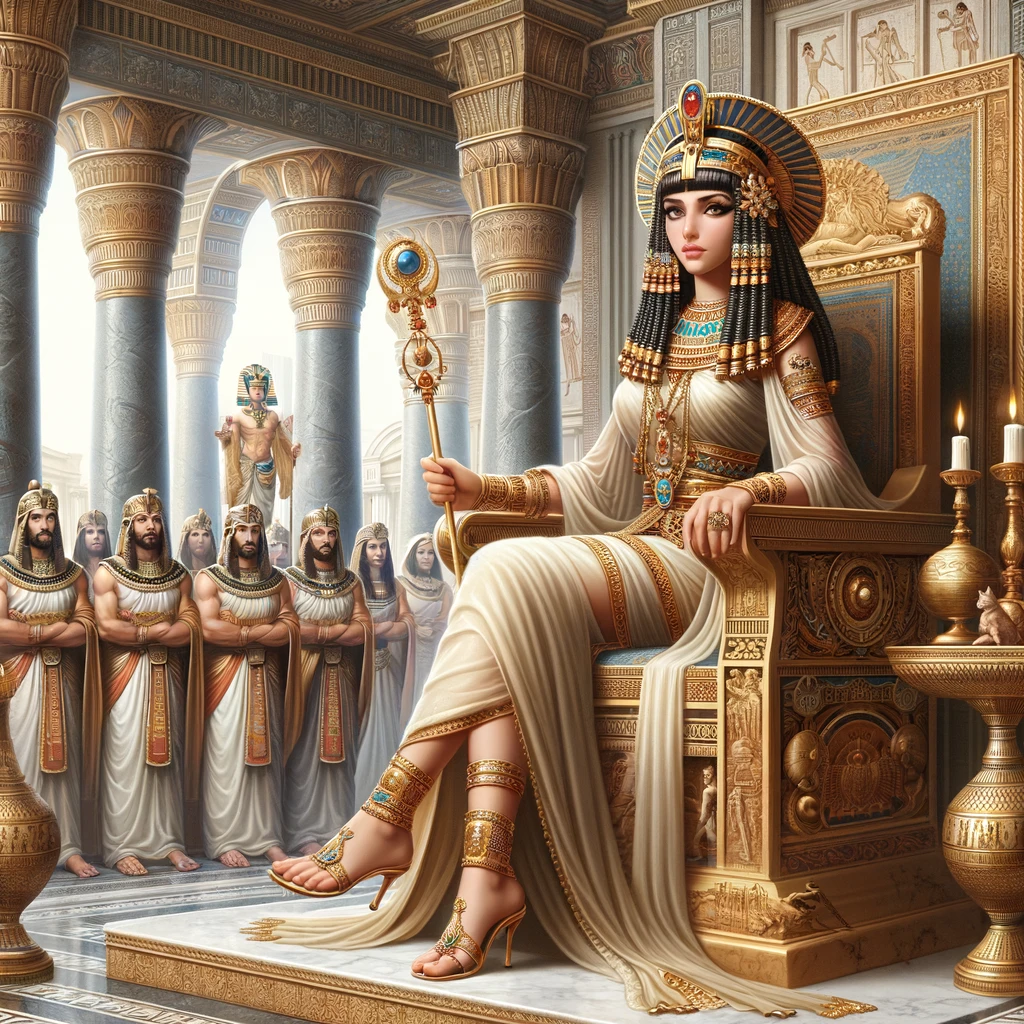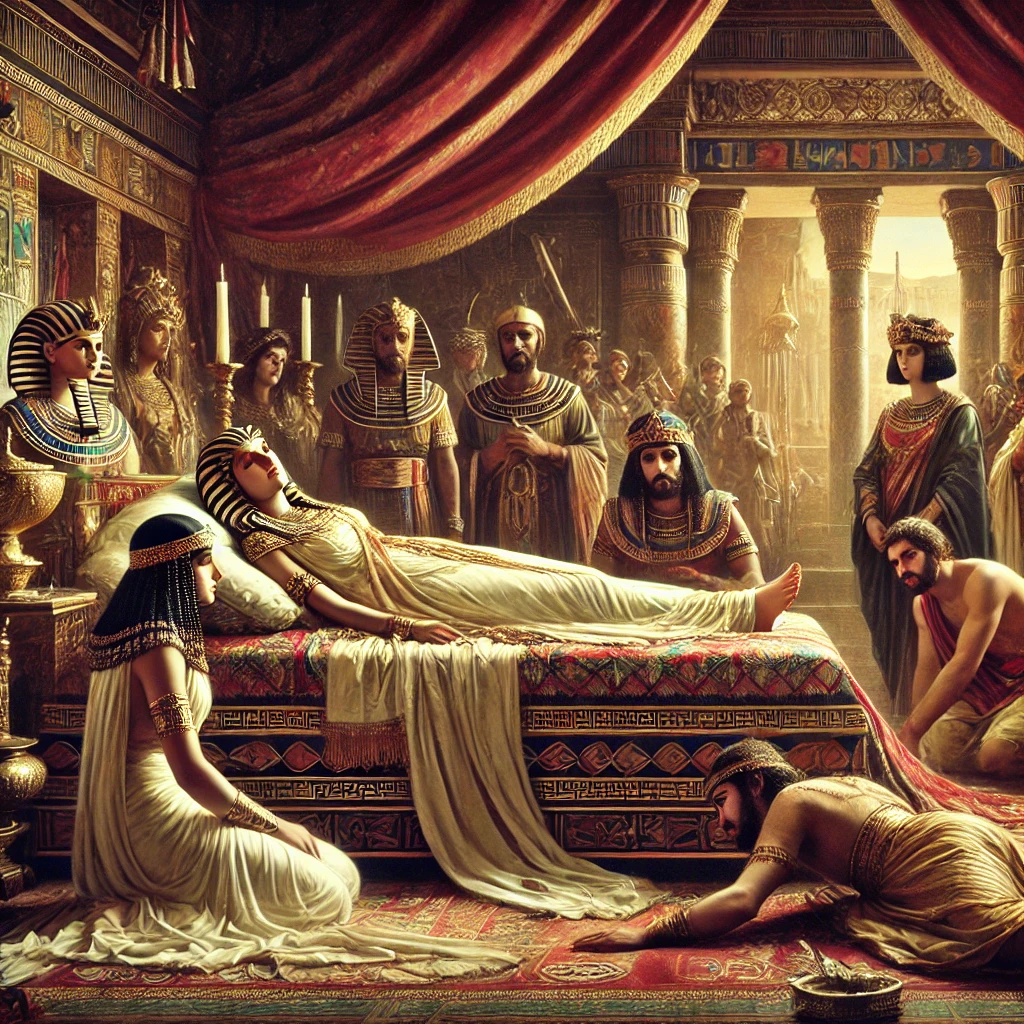On August 10, 30 B.C., Cleopatra VII, the last active ruler of the Ptolemaic Kingdom of Egypt, died by suicide in Alexandria. Cleopatra’s death marked the end of an era for Egypt and the final chapter in the storied history of the Ptolemaic dynasty. Her demise followed a series of tumultuous events that had led to her and her lover, Mark Antony’s, downfall against the backdrop of Roman political intrigue.
Cleopatra’s reign was characterized by her efforts to restore Egypt’s power and influence, often through strategic alliances and romantic liaisons. Her relationships with Julius Caesar and Mark Antony were central to her political strategy. However, after Antony’s defeat by Octavian (later Augustus Caesar) at the Battle of Actium in 31 B.C., Cleopatra’s position became increasingly precarious. The ensuing loss of political and military support led to her and Antony’s eventual defeat and subsequent suicides.

The Circumstances of Cleopatra’s Death
Cleopatra’s suicide is traditionally believed to have been by the bite of an asp, a venomous snake, although historical accounts vary. According to ancient sources, Cleopatra took her own life after Antony’s death, which occurred just hours earlier, following the failed attempt to escape the advancing Roman forces. The exact details surrounding Cleopatra’s death are shrouded in mystery and speculation, with different historical accounts providing varying versions of events.
In her final moments, Cleopatra chose to die in the manner that was both dramatic and symbolic, reflecting the grandeur and tragedy of her life. Her death was not only a personal tragedy but also a significant political event. The loss of Cleopatra marked the end of Egyptian sovereignty and the complete annexation of Egypt into the Roman Empire.

The Legacy of Cleopatra VII
Cleopatra’s death had profound implications for the history of Egypt and Rome. With her demise, Egypt became a province of the Roman Empire, ending the Ptolemaic dynasty’s rule and consolidating Octavian’s power, who would later become Emperor Augustus. Cleopatra’s life and death have been subjects of fascination and dramatic retelling throughout history, reflecting her complex legacy as both a ruler and a figure of romantic and political intrigue.
Cleopatra is remembered not only for her political acumen and strategic alliances but also for her enduring cultural impact. Her life has been immortalized in literature, art, and film, portraying her as a powerful and enigmatic figure. Cleopatra’s legacy continues to capture the imagination of people around the world, symbolizing both the splendor and the tragic downfall of one of history’s most iconic queens.

The death of Cleopatra VII on August 10, 30 B.C., marked a pivotal moment in ancient history, symbolizing the end of Egyptian independence and the rise of Roman dominance. Her dramatic end was a reflection of the turbulent times she lived through and has left a lasting impression on history and culture. Cleopatra’s story remains a powerful testament to the complexities of power, politics, and personal legacy.
